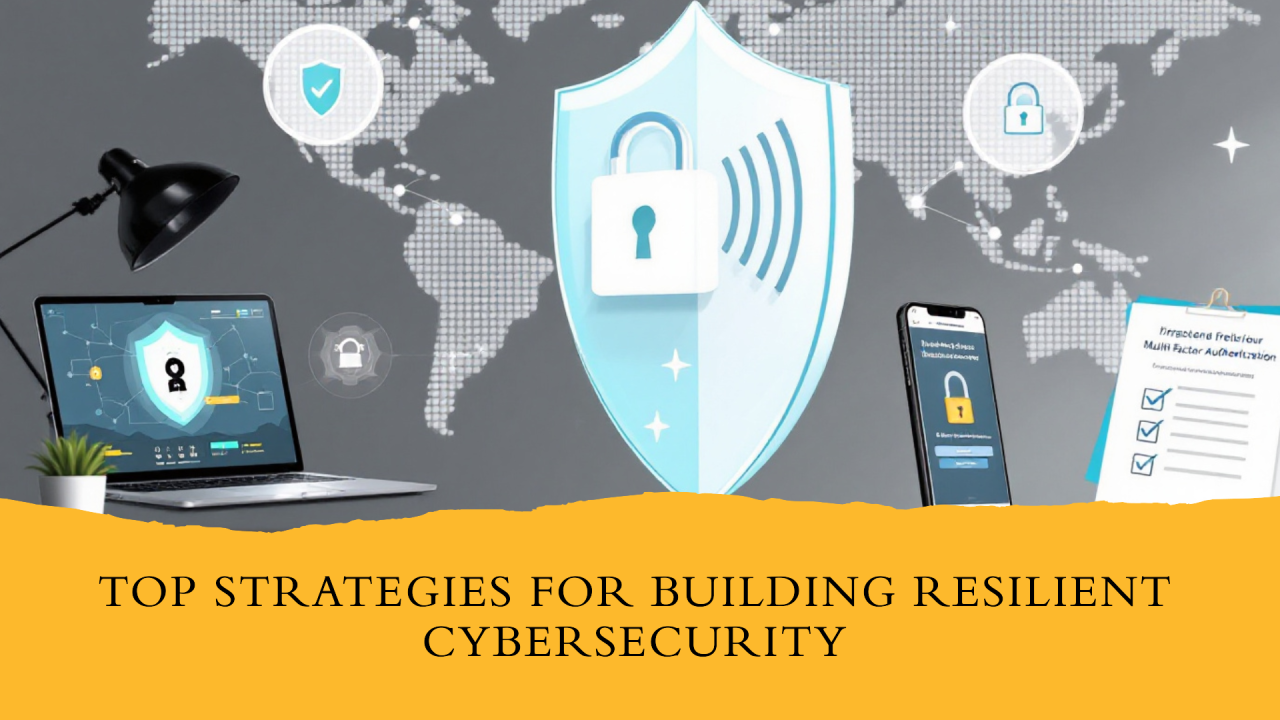
Top Strategies for Building Resilient Cybersecurity in a Remote Work Environment
mVerve - Empowering businesses through Digital Transformations
We are an Enterprise Software Development firm, we build full-stack Web and Mobile Apps with leading Technologies.
As remote and hybrid work models become more common, enterprises must address a fundamental question: how can they protect sensitive information when teams split and rely on digital tools? With cyber threats targeting these new vulnerabilities, what strategies can companies adopt to build a resilient cybersecurity framework that ensures business continuity? Let's look at the necessary procedures to strengthen your defenses.
Foster a Security-First Culture
Building a resilient cybersecurity posture starts with creating a security-first mindset across the organization. Regular training and awareness programs are essential. Empower employees to recognize phishing attempts and adhere to best practices. Cybersecurity is everyone’s responsibility.
Implement Strong Identity and Access Management (IAM)
Effective Identity and Access Management controls who has access to what within your organization. Misconfigured IAM systems can lead to vulnerabilities. Enforce granular permissions to ensure employees access only the data necessary for their roles. Implement Multi-Factor Authentication (MFA) and regularly audit access rights to reduce the risk of unauthorized access.
Strengthen Endpoint and Mobile Security
With remote work, personal devices have become extensions of corporate networks. Securing these endpoints is non-negotiable. Deploy Mobile Device Management (MDM) solutions, ensure devices have updated security patches, and use encryption to protect sensitive data. Implement strict policies for Bring Your Own Device (BYOD) to mitigate potential entry points for cybercriminals.
Adopt Zero Trust Architecture
Zero Trust is a strategic approach to cybersecurity based on the principle of "never trust, always verify." Every access request, whether internal or external, is thoroughly vetted. Adopting Zero Trust ensures that your security measures adapt to your business needs, providing a dynamic defense against threats.
领英推荐
Leverage Advanced Threat Intelligence and AI
Artificial Intelligence (AI) is transforming cybersecurity by enabling proactive threat detection and response. Integrating AI-powered tools allows organizations to automate repetitive tasks and gain predictive insights, shifting from a reactive to a proactive security stance. Balance AI’s capabilities with human expertise to interpret and act on the intelligence effectively.
Secure Cloud Infrastructure and Data
Migrating to cloud-based solutions offers scalability and cost-efficiency but introduces new security challenges. Ensure that your cloud environments adhere to stringent security standards. Regular vulnerability assessments, encryption of data at rest and in transit, and using Cloud Security Posture Management (CSPM) tools are key strategies. Automation in compliance and security can streamline the protection of cloud assets, reducing the likelihood of breaches.
Develop a Resilient Incident Response Plan
Resilience involves recovering swiftly when breaches occur. An effective incident response plan should outline clear steps for detection, containment, eradication, and recovery. Regularly test and update your plan to ensure your team remains prepared for cyber threats.
Invest in Managed Security Services
Managing cybersecurity in-house can be overwhelming, especially with a talent shortage. Managed security services, like those offered by mVerve, provide comprehensive cybersecurity solutions tailored to remote and hybrid environments, including 24/7 monitoring, threat intelligence, and incident response. Leveraging mVerve’s expertise can enhance your security posture without expanding internal teams.
Conclusion
As remote and hybrid work environments become more common, building a resilient cybersecurity framework is imperative. By fostering a security-centric culture, implementing strong IAM, securing endpoints, adopting Zero Trust, leveraging AI, protecting cloud infrastructure, developing effective incident response plans, and partnering with expert service providers like mVerve , organizations can safeguard their digital assets and ensure business continuity. In 2024, resilience in cybersecurity is a necessity.